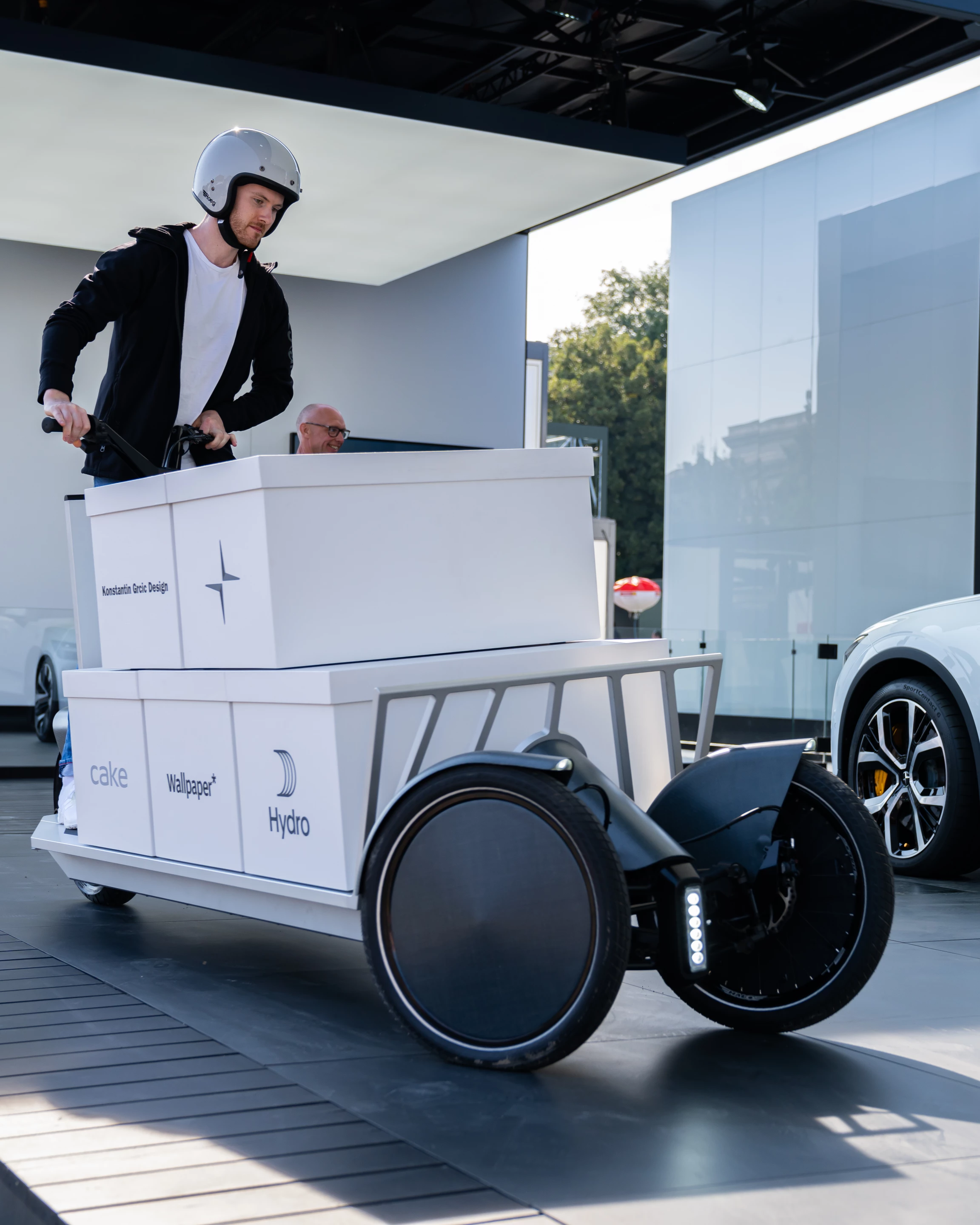Earlier this year, Volvo-owned Polestar signaled its intentions to move beyond electric cars and into other forms of clean transport, introducing an electric transporter concept for carrying goods around urban areas. The company has now turned up to IAA 2021 in Germany with a fully-functioning prototype, which carries with it a few new details around how a production version of the so-called urban "sled" will work.
The Re:Move electric cargo mover concept was first revealed back in March and featured a highly practical flatbed design just begging to be loaded up with boxes, bags or other cargo. While originally listed as 600 lb (275 kg), the payload capacity has now been pared back to 396 lb (180 kg), though the Re:Move maintains a slim profile designed to suit most bike lanes, measuring just 750 mm (30 in) across.

Made from recyclable aluminum, the Re:Move's chassis is fitted with an electric tilting mechanism to lean into corners and allow for a tight turning circle of less than 7 m (23 ft). A damped rear swing arm should make the ride a little less jarring for the people and items onboard, and disc brakes also feature for greater stopping power.
A 2.2-kWh battery pack powers the whole operation, with the Re:Move limited to a maximum speed of 25 km/h (15.5 mph) in line with the electric bicycle laws of many jurisdictions. Always-on front lighting, brake lights, a horn and optional indicators are also onboard for the purposes of safety.

The Re:Move is the result of a collaboration between Polestar, e-bike-maker Cake, aluminum manufacturer Hydro, Wallpaper magazine, and industrial designer Konstantin Grcic. There are no figures offered on range at this point, nor on price or availability, but the designers are positioning the Re:Move as a cleaner alternative to delivery vans in cities, or even as a cargo transportation solution in rural areas.
“The passion and expertise our partners have brought to this project shows the power of great design,” says Thomas Ingenlath, Polestar CEO. “Electrifying vehicles is the start point, not the end game. Our engineers have proven that this kind of open collaboration will accelerate innovation and the shift to truly sustainable mobility.”
Source: Polestar







